|
The U.S. offers a plethora of diversity in everything from food and culture to weather and terrain, giving each city its own unique personality. And if cities are like people, we'll click with some and clash with others. But do you know which city's personality is most like yours? We took a tour of the country, looking at some of the largest cities through the lens of the MBTI which rolls up into one of four Keirsey temperaments:
 SJs (Traditionalists) Most of America is SJ. Our values are SJ -- practical, concrete, lives filled with work schedules, train schedules, and sports schedules. Duty, honor, discipline and teamwork -- Captain America stuff. The bulk of the SJ temperament is found in the Midwest where Chicago, Illinois is the flagship city -- the city of big shoulders, a city that works. Even the education here works! (the slogan of the City Colleges of Chicago). It doesn't matter how cold it is or how much snow there is on the ground; unless your car is buried in a snowbank and you need it to get to a job ten miles from the nearest el stop, you are going to work. Yeaaahhh, I'm also gonna need you to come in on Saturday. Most of the companies are financial. Two of the top ten MBA schools are located in Chicago (Northwestern and the University of Chicago). Everything's about measures and metrics, KPIs and ROIs. But you won't find one creative Fortune 100 company in Chicago. Groupon is the closest it gets. And if it's not a financial company, it's a long-established food manufacturer like Kraft, Wrigley, or Vienna Beef. Chicago is best known for Hot Dogs and Pizza, and even those were invented elsewhere. 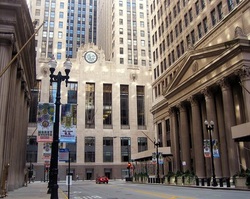 The transportation is traditional. You might get a derailment on the Brown Line if the operator takes the turn too fast, but hey, it's tradition; this is the rust belt. If Chicago were a software program it would be Excel. People use it at work, on the train, and even at home on the weekend to manage personal finances or fantasy football stats. If Chicago suffered from a psychological disorder, it would be a Napoleon complex. People work their asses off but they're never going to be great. They're always going to be the second city. Other notable SJ cities: Pittsburgh, Pennsylvania; Atlanta, Georgia; Charlotte, North Carolina; Houston, Texas; Dallas, Texas; basically any city with a concentration of government and banks. 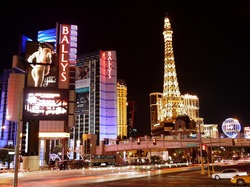 SPs (Experiencers) SP cities are scattered throughout the U.S. in cities ranging from Anchorage, Alaska to Orlando and the whole state of Florida. But the flagship SP city is Las Vegas, Nevada. Lights, sounds, sights, sex, risk, gambling. It's all there and it's all fake. The infrastructure is fake -- plaster and pre-fab. More thought went into the design of the fake cities and roller coasters than the infrastructure needed by the people who commute to their service jobs everyday. "Hey let's stand in front of the Eiffel Tower in Paris!"  And for those risk-taking, in-the-moment SPs who are into purer forms of entertainment, there's plenty of uber-real activities within driving distance, from hiking in Red Rock Canyon or Zion National Park to white water rafting in the Grand Canyon. As for food, who cares? As long as it's quick and easy -- casino buffets, food on a carousel, and microwaveable steak. If Las Vegas were a software program, it would be anything new that can be downloaded on your smartphone today. Psychological disorder: nymphomania or any addictive disorder. Other notable SP cities: San Diego, California; Honolulu, Hawaii; any city in Florida.  NFs (Idealists) NF cities are aesthetic, creative, and compassionate. Portland, Oregon is the quintessential NF city - environmental, ahead of the curve (a very 'N' thing), especially when it comes to the arts or green programs. Portland has more art galleries than beer halls, but that's not to say their beer isn't an art. Portland is the trailblazer of craft beer (another 'N' thing), drawing the envy of big SJ companies like Budweiser who attack local breweries with "we don't make beers you can sniff" ads. But Budweiser may have been on to something. NFs start off as artists but end up bourgeois (the death of an NF) with their craft beers, their fifteen ways to make a latte, or their thirty ways to make a pizza or a hot dog. 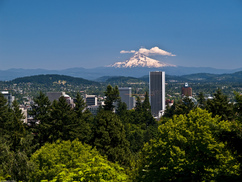 While the grocery stores in most U.S. cities have a vegetarian section, Portland has entire grocery stores just for vegetarians. And they take it seriously. Whereas Chicago has metal detectors in high schools, Portland has GMO detectors in vegetarian stores. You'll find a lot of "free" in Portland - GMO-free, free range tofu, and micro-aggression free. Move to Portland if you don't want to get questions like "Did your parents go to college?" "You're from Korea? Your English is pretty good." "You're 40 and still single?" Or "No, where are you really from?" If Portland had a systemic psychological problem, it would probably be something associated with attachment theory, displacement, or ambivalence. People are escaping family, but still attached, so they express that by saying "we're not going to let any harm come to these plants." If Portland were a software program, it would be anything Adobe. Other notable NF cities: Asheville, North Carolina; Madison, Wiscosin; Ann Arbor, Michigan; Eugene, Oregon; Boulder, Colorado; Burlington, Vermont; Sedona, Arizona 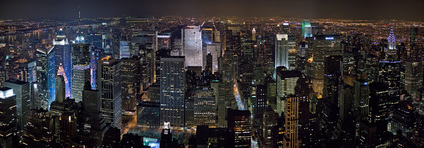 NTs (Conceptualizers) Similar to NF cities, NT cities are creative and cutting edge, but with a different end game in mind. It's the kind of creativity employed to make a dollar vs. the creativity used to save the whales. New York is the flagship NT city of the east coast. (NTJ to be exact). 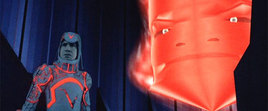 Some might even say New York is the flagship of the world, a modern day Alexandria. Walk down 42nd street and you brush shoulders with the best in every industry whether it's business, music, art, theatre, fashion or food. New York has Wall Street, Broadway, Silicon Alley, Central Park, Grand Central Station, an iconic skyline, and an endless supply of energy. As the Chairman of the Board puts it, "I want to wake up in a city that never sleeps and find I'm king of the hill, top of the heap!" If New York were an application it would be...well, it would be the thing that controls everything else, The Matrix or the the Master Control Program from Tron. 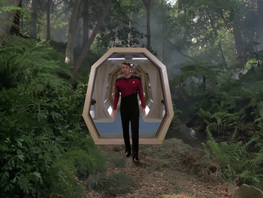 On the west coast, NTP Los Angeles, California is the quintessential anomaly. New York is London, sure. Chicago is any major city in the middle of the continent with a population greater than 5 million (think Moscow -- stark, boring, people working for no particular reason, like a scene out of Metropolis -- off to the proverbial salt mines we go!) L.A. is more like the holodeck in Star Trek the New Generation - fantasy on top of fantasy on top of fantasy. Whereas New York has the Matrix or the Master Control Program, L.A. says "We're going to reinvent the grid. We have the cloud. We have the holodeck!" NTJ New York and NTP LA both have a great fusion of food, but wearing tennis shoes to a four restaurant is something you're only going to see in California. It's a 'P' thing. If LA were a software program it would be Adobe Premiere, Final Cut Pro, or any angel investor software. Prevailing psychological disorders: Narcissistic Personality Disorder, Histrionic Personality Disorder Other notable NT cities or regions: Boston, Massachusetts; the Research Triangle (Chapel Hill, Durham, Winston-Salem), Silicon Valley Bi-polar / Evolving Our final category doesn't have a correlation to a psychological temperament, but it does have a correlation to a mood disorder. We call these bi-polar or evolving cities, which simply put is any city where artsy is mixed with government.
And finally, our flagship bi-polar city -- Washington, DC, mainly because it will never finish evolving. It's quintessentially stuck, confused, and transient (nobody stays more than three years). Washington DC looks NT, but it's really NF. It's the only place where government is ubiquitous and marijuana is legal. Now you know the personality types of major U.S. cities. But do you know your own? Take a test today and find out which city you have the best chemistry with:
http://www.humanmetrics.com/cgi-win/jtypes2.asp#questionnaire Special thanks to Ed Childs, MBTI expert and Career Counseling Adjunct Professor at DePaul University Chicago, for his subject matter expertise and contribution to this article. |
AuthorKurt Weissgerber is a digital collaboration product manager by day, writer and amateur psychologist by night. Archives
May 2021
Categories |

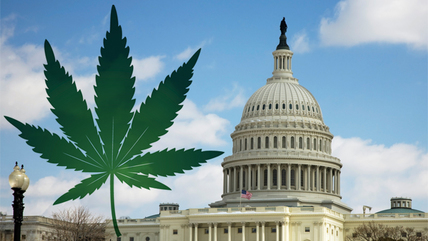
 RSS Feed
RSS Feed